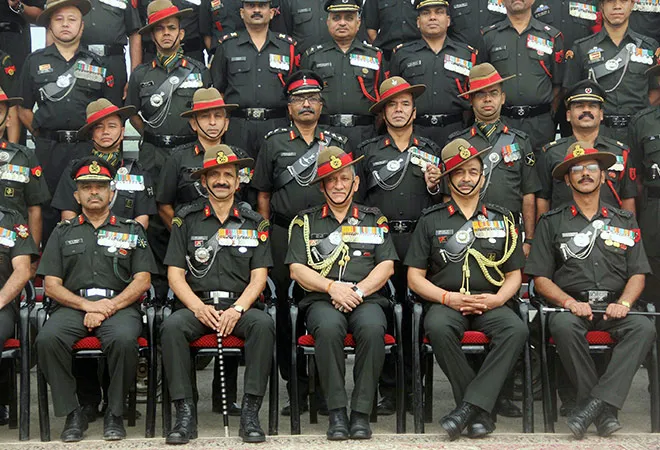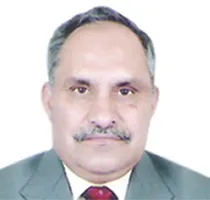-
CENTRES
Progammes & Centres
Location

The writ petition filed in the Supreme Court by Colonel Amit Kumar and 356 other serving personnel, all middle piece or junior officers and enlisted men, is an unprecedented expression of no- confidence against the manner in which our highest court has dealt with the complicated issue of how the Army has tackled internal strife within the country over the past few decades. In keeping with the proverb from the Bible the Supreme Court “having sown the wind is now reaping the whirlwind”. Whatever may be the outcome of this petition, there can be no two opinions though, that a Rubicon has been crossed, and in the long run it bodes ill not just for our military, but for the Government and the Judiciary, as well as for our democratic institutions and processes towards the building of which the contribution of our Military has been praiseworthy.
This column could well have started with gratuitous self-praise and an “I told you so”, having written two pieces on this very subject in the Op-ed columns of the Pioneer two years ago (Human Rights and the Military, 15 Sept 2016 and When Judges Become Generals, 12 Jul 2016). But, apart from being infantile, making accurate predictions on such a subject is hardly cause for celebrations. Sadly, we are country where those in powerful positions have never let their ignorance get in the way of their actions, especially when they are fully aware that they will never be held accountable for the repercussions.
The petition, shorn of legalese, has in essence questioned the judiciary’s understanding of how insurgencies play out and accused it of hampering soldiers on the frontline of this battle, who at the cost to their lives, are attempting to protect the “sovereignty, integrity, security and dignity of the Nation”. Moreover, it goes on to point out that unrestrained judicial activism has, through the back door, nullified important provisions provided in the Armed Forces Special Powers Act, legislated by Parliament, thereby making soldiers vulnerable to harassment and prosecution for doing their duty as they perceived it in those extremely trying circumstances facing serious threat to their lives. Their argument hinges on two simple premise that decisions taken on the battlefield cannot be open to judicial review and protection of the State comes above everything else and if the State were to collapse, then the Constitution, which both the Military and the Judiciary are sworn to uphold, would be of little consequence and not worth even the paper it is written on.
The crux of the problem lies in the lack of understanding displayed by our judiciary with regard to counter insurgency operations. This is clearly borne out, for example, by Justice Lokur’s remark that “A person carrying a weapon in a disturbed area in violation of a prohibition to that effect cannot be labeled a militant or terrorist or insurgent”. The learned judge has even elaborated on the quantum of firepower that can be brought to bear on militants during an operation or encounter by stating that “there is a qualitative difference between use of force in an operation and use of such deadly force that is akin to using a sledgehammer to kill a fly; one is an act of self defence while the other is an act of retaliation.” Unarguably, such a line of thought is bound to confuse and confound any soldier who finds himself deployed for counter insurgency operations.
Such a line of thought has been accepted by the judiciary because in its ignorance it has attempted to equate such operations undertaken by the military, in areas declared as disturbed and where AFSPA has been promulgated, with what are routinely referred to as “Aid to Civil Authorities.” Nothing could be further from the truth. Whether we are willing to call a spade a spade or not, the simple truth is that an insurgency differs from a riot or civil disturbance, where the Armed Forces are called in for “Aid to Civil Authorities” when the local administration is unable to control the situation. In that, here citizens of that region have disavowed our Constitution and existing democratic processes, declared war against the State and taken to the gun. Whether they are justified or not in adopting such measures are immaterial, as that falls in the purview of the political establishment which also has the responsibility for declaring an area as “disturbed” and promulgating AFSPA. It stands to reason then that the military is only called in when the writ of the government no longer runs in the region and all constitutional structures and processes have collapsed and governance is, in every sense of the word, nonexistent.
In such circumstances, if we are keen to protect the integrity and sovereignty of the State, the Armed Forces will have to be given the requisite powers and the necessary means to regain control and revive governance structures and constitutional processes. Once they have successfully reestablished the rule of law and enabled constitutional authorities to commence functioning, to then hold them culpable for alleged wrongdoings, decades later, based on allegations made by either those who were insurgents themselves or their next of kin and ideological supporters’ verges on the ridiculous, apart from being wholly unfair and against the course of natural justice.
There are commentators who suggest that this petition is motivated by a feeling amongst soldiers that they deserve absolute protection for their actions and use AFSPA as a shelter for their illegal acts. Some have even gone on to suggest that since the government has used the provisions of AFSPA to refuse permission to prosecute soldiers in a number of instances, they have little credibility because the likelihood of all the accused soldiers being innocent is statistically improbable. Such perceptions again reflect an unawareness of how insurgents function. It is not without reason that Mao Tse Tung famously wrote “The guerrilla must move amongst the people as a fish swims in the sea”. Insurgents use every resource available to impede operations by the Armed Forces. In this, actions by over ground workers and ideologues to sway the media and the courts are one of the most effective tools. In any case nowhere does the 154 page petition state that soldiers must be given absolute protection.
As a matter of fact, AFSPA in conjunction with the various directions and guidelines issued from time to time by the Guwahati High Court and the Chief of Army Staff respectively lay down clear-cut procedures that units and personnel are required to follow. This is not to suggest that there have not been instances where an unscrupulous minority has not attempted to take advantage of the provisions of the Act for their own nefarious ends. However, most such cases have been promptly dealt with, though there have been a few unfortunate instances where the military hierarchy has been lax in taking action. But such lapses are not just the sole province of the military hierarchy, but have on occasion, also afflicted the functioning of a variety of bodies and organizations, including even in the private sector, as well. That is hardly reason enough to throw out the baby with the bathwater.
Finally, the reasons why this petition will have adverse impact on our governance structures and democratic institutions needs to be fully appreciated. Firstly, if the petition were to be rejected, it would then obviously have adverse consequences on the conduct of operations as we may be confronted with refusals on the part of officers and men to undertake tasks which would open them up to judicial scrutiny in the future. What may be even worse is the strong likelihood of troops avoiding contact with insurgents by looking the other way. Secondly, the military hierarchy should and must have been fully aware of the adverse consequences that the rulings of the Supreme Court would have on operations and on the morale of troops involved. It was their responsibility to have approached the Court for a favourable resolution of the issue and has, as a matter of fact, grievously erred by leaving it to individuals to approach the courts. By its inaction the senior leadership has shown a remarkable lack of empathy for the situation troops on the ground find themselves in. It has also shown an unfortunate absence of moral courage to stand up for their command in a matter that impinges on their operational functioning, thereby allowing an unfortunate precedent to be set.
This commentary originally appeared in TOI Blogs
The views expressed above belong to the author(s). ORF research and analyses now available on Telegram! Click here to access our curated content — blogs, longforms and interviews.

Brig. Deepak Sinha (Retd.) was Visiting Fellow at ORF. Brig. Sinha is a second-generation paratrooper. During his service, he held varied command, staff and instructional appointments, ...
Read More +